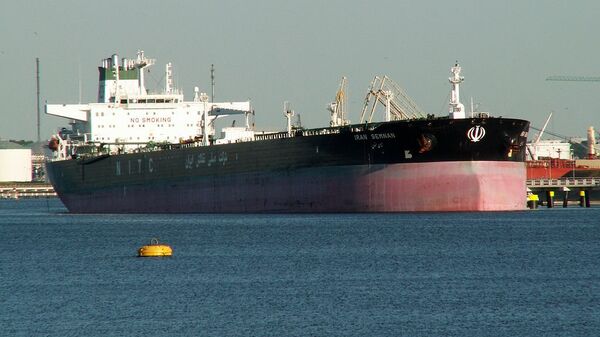Brent crude oil has surged by 1.4% to $69.21 per barrel in Asian trade, while so-called “safe haven” assets like gold and the Japanese yen, likewise, showed an upward trend.
Acute geopolitical tensions have spawned fears of a widening conflict in the Middle East, with energy market players increasingly concerned that the crunch could soon disrupt regional crude supplies.
The spat is feared will potentially disrupt shipping in the world's busiest oil sea route, the Strait of Hormuz. Around a fifth of global oil supply passes through the strait, which connects the Gulf with the Arabian Sea, with the Strait of Hormuz being vital for the major oil exporters in the region - Saudi Arabia, Iraq, the UAE, and Kuwait - whose economies are built around oil and gas production. Iran also relies heavily on exporting oil through the strait.
As energy experts predict, oil prices would skyrocket should Tehran move to completely cut off the Strait of Hormuz, which is located between Iran and Oman.
At the same time, the escalating US-Iranian row sent global stock prices down: Japan's benchmark Nikkei 225 stock index fell by 1.3%, and the Hang Seng in Hong Kong went down 0.8%.
The asset price fluctuations occurred against the backdrop of Iran’s retaliation against the US over the Trump-instigated assassination of the elite Quds Force's commander Qasem Soleimani, who was killed in a drone attack together with his associates, pointed to as ones "behind the planned attacks" on US military and diplomatic personnel in Iraq.
The latest round of controversies was sparked by a New Year raid on the US Embassy in Baghdad, in which pro-Iran Shia militias battered down windows and doors in an attempt to break in.



